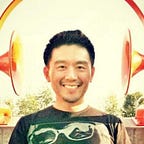Memorials: music and questions to prevent violence
A composer reflects on distanced mourning and violence prevention during the COVID-19 Pandemic, by remembering the April 16th mass shooting tragedy at Virginia Tech through song.
There was a time before physical separation and virtual funerals where people gathered together in silence. I remember being shoulder-to-shoulder, in the midst of thousands of individuals, holding candles at midnight, standing in silence for 32 minutes on the Drillfield at Virginia Tech. This yearly memorial honors the faculty and students who lost their lives in a mass school shooting that happened on April 16, 2007.¹ I co-created a musical work to respond to the tragedy of gun violence, by bringing people from isolation to belonging. The lyrics to the opening of the show are:
What if young people could not die?
Or what if we couldn’t die from a gun?
Could we imagine a world so alive?
From 2014 to 2017, writer Aaron Jafferis and I interviewed individuals in communities nationwide affected by youth-involved shootings. Their experiences became part of a music-theater forum² about coming of age in an age of guns. The project asks how we can recover from violence and prevent its recurrence. A local cast performs the core oratorio alongside multiple community-created projects.
Listen (and sing along) to the opening:
Since the 10-year-memorial in 2017, the 2018 tragedy in Parkland and responsive March For Our Lives³ organizing have caused Aaron and me to reconsider the project. “What If” is an update from the previous opening “Years After.” The lyrics are now filled with urgent questions. The music became deeper, more resonant, and less ambiguous.
Likewise, the title changed. The Ones is an updated version of (Be)longing, co-commissioned and performed at the Moss Arts Center at Virginia Tech⁴ and International Festival of Arts & Ideas⁵, as well as Trigger, performed at MDC Live Arts⁶. The project was and continues to be produced by ArKtype. The new title, revised libretto, and musical score honor the March For Our Lives activism from 2018 to today. The new title comes from the phrase, “We are the ones we’ve been waiting for.” We are inspired by people and communities who take responsibility, deliberately organize, and prepare comprehensive plans to end gun violence.
The lyrics continue with:
When in the history of the world
were so many children asking
“what if” at once?
What if none of us had to die?
While the ceremonial candle at Virginia Tech will be lit at midnight and burn for 24 hours, there will be no public gathering this year.⁷ Schools around the United States started to close in March 2020, to limit the spread of COVID-19.⁸ Safety has different meanings for different people. A friend of mine told me that his 3rd grade daughter was happy to stay at home, so she wouldn’t have to worry about being shot at school.
This innocent statement reveals its truth, as last month was the first March in 18 years with no school shooting.⁹ On the flip side, The New York Times, reports about 2 million guns were sold that month.¹⁰ Even though gun violence is an American public health crisis¹¹, the current presidential administration rules gun shops as an essential business.¹²
Will we emerge from this pandemic without violence?
The lyrics end by connecting us with the sea.
So alive, our questions full of water,
they pull us toward some land we can’t see,
as if we’re stones the ocean once was wrapped around,
and now we’re breaking upon the shore.
Mourning rituals around the world often include music and processions. As we shelter-in-place separated from loved ones who are dying, I offer a walk outdoors to notice how nature heals.
Thank you for listening and sharing this musical offering 🎵
[1] Virginia Tech. We Remember.
[2] Robbie Harris. 10 Years After Virginia Tech Shooting. NPR Weekend Edition
[3] March For Our Lives.
[4] The Moss Arts Center provides connection and community building with premiere of choral and hip-hop theatre forum ‘(Be)longing’. Virginia Tech Daily
[5] Brian Slattery. Hip Hop Oratorio “(Be)longs” at Long Wharf. New Haven Independent
[6] Phillip Valys. Anti-gun-violence Musical Trigger Comes to Miami. SouthFlorida.com
[7] Virginia Tech. We Remember 2020 Schedule.
[8] Map: Coronavirus and School Closures. Education Week
[9] Sophie Lewis. March 2020 Was the First March Without a School Shooting in the U.S. Since 2002. CBS News
[10] Keith Collins, David Yaffe-Bellany. About 2 Million Guns Were Sold in the U.S. as Virus Fears Spread. The New York Times
[11] American Public Health Association. Gun Violence.
[12] Lisa Pane. Trump Administration Rules Gun Shops ‘essential’. Time
